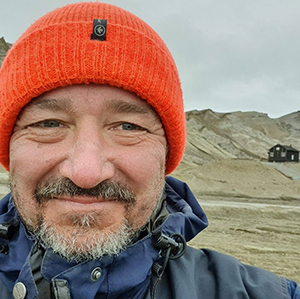The History and Legacies of hydropower in the Swedish Arctic
Arctic Seminar Series #2

Welcome to the second installation of our Arctic Seminar series in collaboration with Environmental Humanities Lab! We will hear from Professor Dag Avango, from Luleå Teknikska Universitet, who will talk about the history of hydropower in the Swedish Arctic and its effects on environment, local communities and cultural heritage sites.
Time: Thu 2024-03-07 12.15 - 13.00
Location: Teknikringen 43, KTH Climate Action Centre
Participating: Professor Dag Avango

Hydropower has been the foundation for Swedish electricity production for decades. Most of it is generated in Northern Sweden, where many of the region’s great rivers were dammed up through the 1960s, causing significant impacts on the environment, local communities and cultural heritage sites. Today, these long-term effects are often overshadowed in the public debate by the massive amounts of carbon-free energy that hydropower provides for the Green Transition currently taking place in the North.
In this seminar, Professor Dag Avango from Luleå Technical University will explain the fascinating history and legacy of hydropower in Northern Sweden, and why cultural heritage should be taken into consideration amid the massive investments in industry and infrastructure that is transforming much of the Swedish Arctic.
About the Arctic Seminar Series
Advancing Sustainability in the Arctic and Beyond: Opportunities and Challenges in the Swedish North is a new seminar series organized by the KTH Climate Action Centre and the Division of History of Science, Technology, and Environment together with the KTH Environmental Humanities Laboratory.
Through a series of public seminars involving an array of leading experts and key stakeholders, Advancing Sustainability in the Arctic and Beyond will explore the opportunities, complexities, and possible conflicts associated with the sweeping economic, social, and environmental transformation taking place in the northern reaches of Sweden and other parts of the Arctic. While the Arctic is the place on Earth where the effects of climate change are most dramatic, it is also a region of ambitious new industries and abundant natural resources, including renewable energy and strategic minerals badly needed for the green transition, and the home to indigenous people with longstanding claims to lands that are closely tied to their cultures and ways of life. As the seminar series will explore, this convergence of different values and stakeholders in the Swedish North—that are sometimes in direct conflict with one another—makes the Arctic a region of great relevance for the implementation of sustainable development on a local, national, and global level